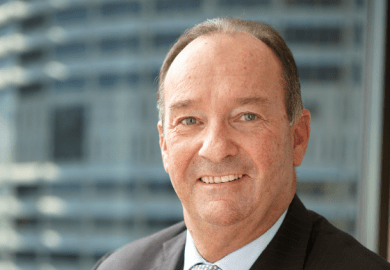Australia’s Labor opposition has proposed an “accord” on higher education, saying the pandemic has proven how much good can be achieved “if partisan politics is dialled down”.
Shadow education minister Tanya Plibersek said Australia’s major political parties should stop “bickering” and work together “to build consensus on the key policy questions”. This approach would produce “sober, evidence-based” reforms capable of lasting, she told the Australian Financial Review Higher Education Summit.
“This is desperately needed given the long period of uncertainty the universities have experienced,” Ms Plibersek said. “The demand-driven system has been and gone. There have been big changes to student fees. Research funding has been all over the shop. International student enrolments have been up, and then brought crashing down by Covid-19.”
She said the accord would be led by the education minister with advice from a “small group of eminent Australians from across the political spectrum. Given the importance of our higher education system to our national prosperity, negotiating last-minute deals on the floor of the Senate is no way to design it. I think there’s a lot [the major parties] can agree on.”
While no aspect of the higher education system would be “out of bounds”, Ms Plibersek outlined some guiding principles for the accord. Reforms should be geared towards generating enough university places to meet the nation’s future skills needs, with students able to take quality courses without shouldering “huge debts”.
Legislated funding cycles that “go beyond elections” would allow universities to hire more permanent staff. “I offer these principles as a starting point for a genuine discussion, that I hope Labor can take into government,” she said. “We must look at the whole system rather than tinkering around the edges.”
International Education Association of Australia CEO Phil Honeywood said politicians had failed to support the industry. “Our politicians are responding to the perception that there’s no real social licence to operate for international education in Australia,” he told the conference.
Mr Honeywood, a former Victorian deputy leader of the Liberal Party, criticised “government by focus group” at the federal, state and territory levels. “Those focus groups are clearly telling them that people in the suburbs [and] regional communities are worried that their children are losing university places [and jobs] to international students. Those perceptions played into a lack of really meaningful support from politicians at all levels.”
Australian National University chancellor Julie Bishop, a former education minister and deputy federal Liberal leader, said governments had failed to show leadership on international education. She said a plan to house returned international students in the ANU’s “Covid-safe residential halls” had gained no “traction”, even though the same residences had been used to quarantine returning public servants.
“There can be a very valid case put to the Australian people that we can bring in international students without jumping the queue for Australians wanting to return home,” Ms Bishop told the conference. “Given that the federal government is facing unprecedented debt and deficit for years to come, we must take every opportunity to support our highest income-earning sectors.”
Australia also needed to “keep faith” with international students, she said. “There was a case for them to be able to complete their studies on campus at ANU – after all, that’s what they paid for.”
Register to continue
Why register?
- Registration is free and only takes a moment
- Once registered, you can read 3 articles a month
- Sign up for our newsletter
Subscribe
Or subscribe for unlimited access to:
- Unlimited access to news, views, insights & reviews
- Digital editions
- Digital access to THE’s university and college rankings analysis
Already registered or a current subscriber?










